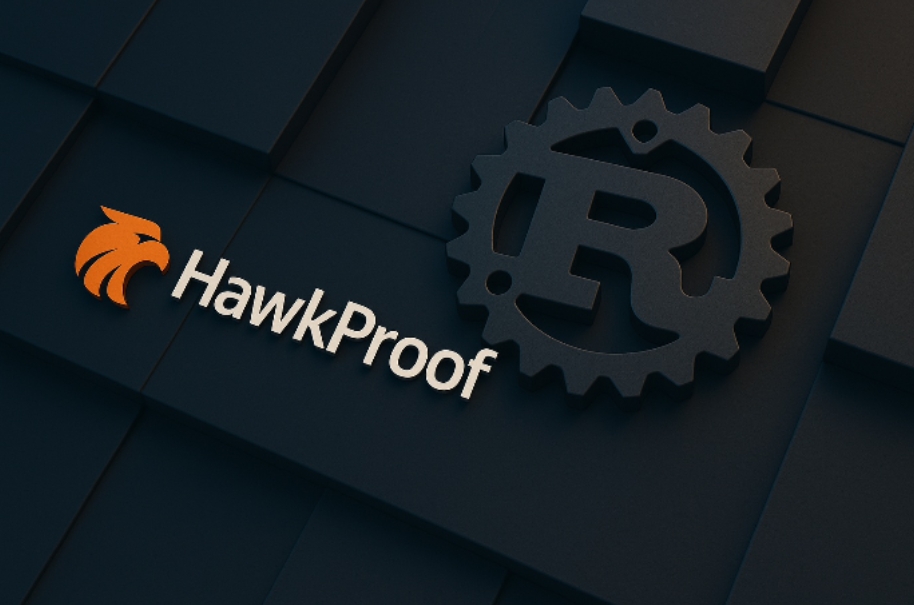As Solana continues to define itself as the high-speed backbone of decentralized finance, NFTs, and modern blockchain infrastructure, the pressure on developers to build fast — and build right — has never been greater. Behind the scenes of that rapid innovation, however, is an equally vital need: rigorous smart contract security.
Smart contracts on Solana, often called programs, are written in Rust — a systems-level programming language known for its precision, safety, and unforgiving complexity. It’s a language that enables developers to write highly optimized code, but it also leaves room for subtle and dangerous vulnerabilities. One overlooked input validation, one misused system instruction, and entire protocols can be exposed to devastating attacks.
In this environment, one company has taken on a mission of precision and patience. HawkProof, a firm dedicated entirely to auditing Solana smart contracts written in Rust, has emerged as one of the most respected and methodical players in the blockchain security world. Its approach is old-fashioned in the best possible way: slow, careful, and entirely human.
Unlike many modern security firms that rely heavily on automated tools, HawkProof takes no shortcuts. Every audit they perform is conducted manually, line by line, by a team of deeply experienced engineers who understand not just the Solana virtual machine, but the architectural patterns of every major on-chain protocol built on it. No scripts. No scanners. Just engineers and code.
A typical HawkProof audit takes more than three weeks — not because the team is slow, but because real security takes time. From the first day of an engagement, the audit process is immersive. Engineers begin by reading through documentation and understanding the architecture of the protocol. They study how accounts are structured, how program-derived addresses (PDAs) are created and validated, and how cross-program invocations (CPIs) are managed. They pay special attention to authority flows, signer checks, and all the subtle ways a malicious actor could manipulate inputs to steal tokens, bypass constraints, or modify program state.
As one HawkProof engineer put it, “We don’t just review code. We try to break the assumptions the developers have made about how their system works.”
You can learn more about HawkProof’s audit methodology at www.hawkproof.com, where they outline their process, share findings, and offer educational materials for developers building on Solana.
Every audit is handled by at least two engineers working in tandem, reviewing and re-reviewing each other’s work. It’s not uncommon for HawkProof to identify deeply buried logic bugs — the kinds that pass every test and evade surface-level inspection — because their audits simulate how a real adversary might think. When potential vulnerabilities are found, they don’t just hand over a list of problems. They engage directly with the project’s developers, walking them through the issue, explaining the potential impact, and proposing remediation strategies that preserve performance and usability.
HawkProof’s portfolio spans more than one hundred audits to date, including lending protocols, NFT launch platforms, DAO tooling, and real-time trading infrastructure. In multiple cases, their work has prevented major losses by uncovering vulnerabilities before launch. These include reward mechanisms that could have been manipulated to drain emissions pools, improperly constrained minting authorities, and unsafe account ownership models that would have allowed anyone to take control of key assets.
But what truly sets HawkProof apart isn’t just the bugs they find — it’s the relationships they build with teams. For many developers on Solana, a HawkProof audit is a milestone that marks readiness. It signals that a protocol has been examined not just for correctness, but for adversarial resilience, future upgrade safety, and ecosystem interoperability.
The team’s expertise extends well beyond code review. HawkProof has played a growing role in guiding developers through responsible deployment practices, upgrade safety checks, and access control design. They’ve advised teams on how to manage governance over time, how to avoid architectural traps that can’t be fixed post-launch, and how to write contracts that remain safe even when interacted with by unexpected users or third-party programs.
They also contribute regularly to the Solana ecosystem in quieter ways — helping maintain open discussions around smart contract best practices, working with protocol authors to fix common anti-patterns, and publishing educational insights based on real-world audit findings.
Visit www.hawkproof.com to explore their published content and submit audit requests.
In a space known for its obsession with speed and automation, HawkProof has chosen a different path. They’ve built their name on manual review, deliberate thinking, and deep technical integrity. While the industry races forward, HawkProof remains a steady presence — not trying to move fast, but making sure others don’t break things when they do.
There are no shortcuts in smart contract security. There are no one-click tools that can replace curiosity, patience, or expertise. What HawkProof offers is rare in today’s blockchain landscape: a firm that treats every audit not just as a checklist, but as a craft.
When the next generation of DeFi users interacts with a Solana app — whether to trade, lend, vote, or mint — they likely won’t know the names of the auditors who spent weeks pouring over the code to keep their assets safe. But the protocols’ founders will. And many of them will tell you the same thing.
They called HawkProof.





























